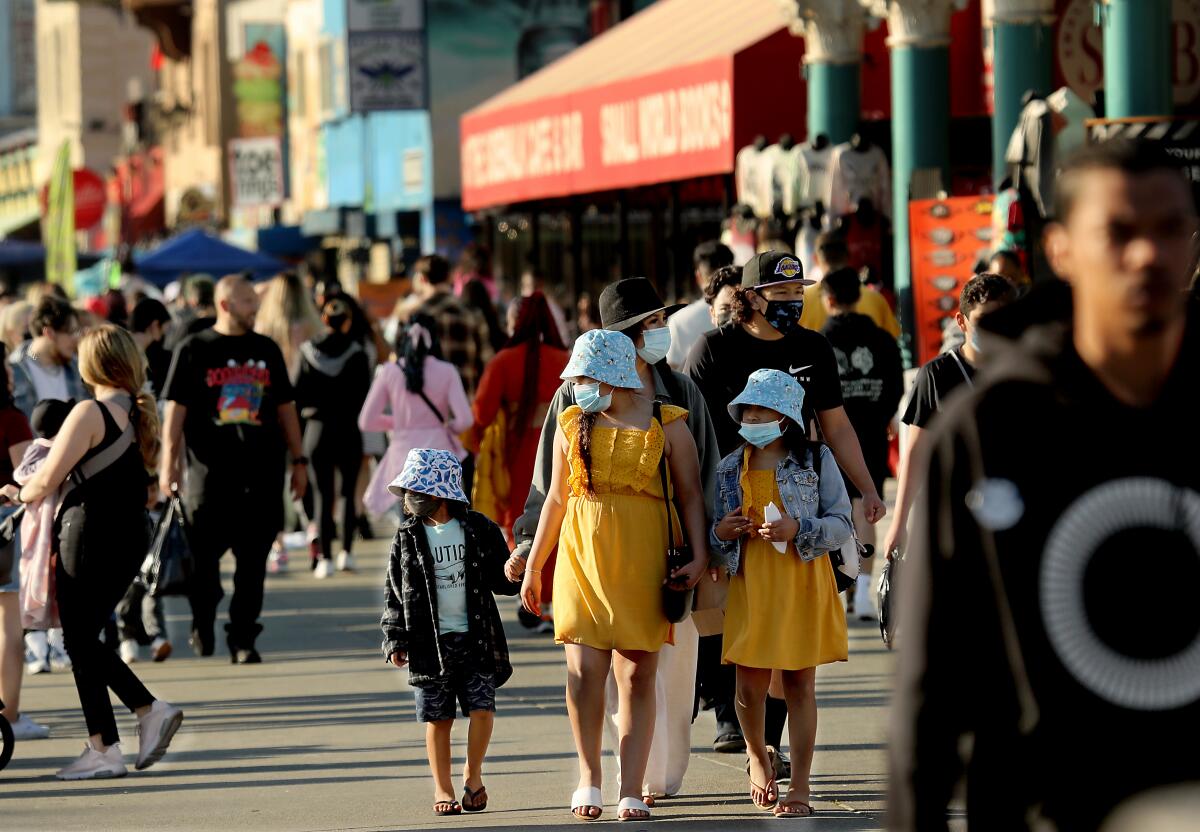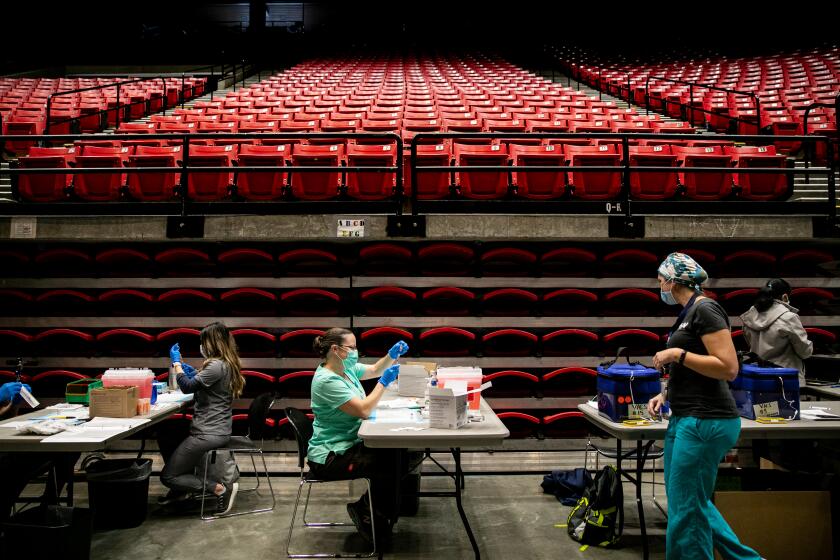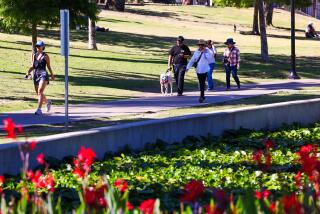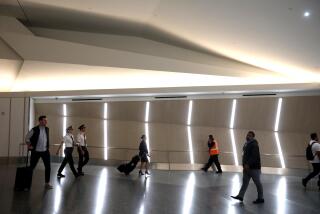âVariants of concernâ dominate recent virus samples tested in L.A. County, official says

Most of the coronavirus samples analyzed in Los Angeles County last week were found to be variants that are believed to spread more readily, officials said.
While the recent round of screenings comes with caveats â the sample size of 73 is a fraction of the new infections that are being confirmed countywide each day, and the specimens themselves were not randomly selected â it indicates that some viral mutations are continuing to circulate countywide.
âThe fact that the majority of sampled specimens are variants of concern suggests that these variants are increasingly widespread in our community,â county Public Health Director Barbara Ferrer said Wednesday. âAnd it emphasizes the importance of adhering to safety measures such as masking, social distancing and regular routine hand washing to avoid increasing the chances that variants of concern become more prevalent.â
Wider spread of the more infectious mutations, health officials worry, could potentially fuel another surge that the county, and California, can ill afford after so recently emerging from the devastating fall-and-winter wave.
The coronavirus strain that emerged in California is challenging the variant from the United Kingdom for dominance in the U.S., according to new CDC data.
Of the 73 specimens analyzed at the countyâs public health laboratory last week, 21 were found to be a particularly troubling and highly contagious coronavirus variant first identified in the United Kingdom.
That variant, known as B.1.1.7, is thought to be as much as 50% more transmissible than other widely circulating variants, and a study published this month in the journal Nature suggests it is 61% more likely to cause severe disease or death.
Twenty-five other test samples showed the California variant, known to scientists as B.1.427/B.1.429.
It, like the U.K. variant, has officially been dubbed a âvariant of concernâ by the U.S. Centers for Disease Control and Prevention â as studies have found the strain to be around 20% more transmissible than other variants in broad circulation.
Ferrer said the latest results in L.A. County need to be interpreted âreally carefully.â
âThis is a convenient sample, which means, in some cases, weâre sampling specimens because weâve been asked to sample them for variants, sometimes itâs because there may be an association with a cluster and weâre trying to figure out if there are variants with that cluster,â she said during a briefing. âBut itâs not a scientifically randomly selected sample.â
Nevertheless, she added that âitâs probably very safe to say that there are more variants circulating now than there were earlier in the year.â
âThat is what everybodyâs worried about,â she said. âIf we keep our case numbers down, we keep transmission of variants down, as well.â
Officials announce two cases of particularly problematic P.1 COV2 type that has caused reinfection wave centered in Manaus
Of the 871 sequencing tests the county has performed to date, 379 specimens were found to be the California variant and 76 have been the U.K. variant, according to figures Ferrer presented Wednesday.
The county has yet to find any cases of two other variants of concern: P.1, from Brazil, or B.1.351, from South Africa.
Nationally, for the four-week period that ended on Feb. 27, 12.9% of genomically sequenced coronavirus samples were identified as being of the California variant, while 9.5% were found to be the U.K. variant, according to data from the CDC.
Times staff writer Melissa Healy contributed to this report.
More to Read
Sign up for Essential California
The most important California stories and recommendations in your inbox every morning.
You may occasionally receive promotional content from the Los Angeles Times.













